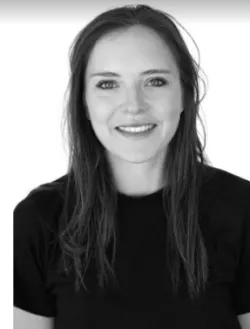
When I was a child I never understood how people could read a word, their brain understand it, and be able to say it aloud. To me, this was such a complex process of trial and error, filled with the emotional strain of embarrassment and the fear of making an error. Eventually, I was diagnosed as having dyslexia; however, I felt this label did not help teachers understand how my brain worked, and I always sensed I was adjusting to the ‘normal’ way of learning.
I have always been fascinated by the brain and how each individual sees the world differently. I further developed this passion while studying neurobiology at Harvard University. Alongside my studies I became a buddy for an autistic child. We spent Sundays adventuring to museums and cafes, and I loved building a relationship with him. I began to focus my research at Harvard on how learning disabilities and Autism Spectrum Disorder (ASD) impact how people learn, interact and see the world.
I enjoy the challenge of figuring out how my students learn best, through colours, games, formulas or many other ways.
Whilst at King's College London studying postgraduate medicine, I researched treatments for the management of ASD. My research highlighted two main arguments. Firstly, early interventions that help with developing communication, social and cognitive skills are key for children with ASD succeeding in school. Secondly, autistic traits are part of normal human variation, and a drive for treatments can often make children with ASD feel rejected.
I have spent the last six years tutoring children with learning disabilities and ASD. I enjoy the challenge of figuring out how my students learn best, through colours, games, formulas or many other ways. It is always great to see my students gaining confidence. The skills I learnt through teaching have helped me with my interactions during my foundation paediatric rotation. I found the job rewarding, fun and diverse. One minute you are reviewing a neonatal growth chart and the next you are explaining intravenous antibiotics to a teenager. The paediatricians I worked with were supportive and energetic, and they helped to create a positive learning environment for junior doctors.
I saw first-hand how much the pandemic was impacting the mental health of children and families.
During the COVID-19 pandemic I worked as a foundation doctor in Child and Adolescent Mental Health Services (CAMHS), reviewing patients in A&E. It was a steep learning curve where I developed key skills in interacting with distressed children and parents. I saw first-hand how much the pandemic was impacting the mental health of children and families. Without the stability and structure of school and social media as their only outlet, children were feeling lost, confused and hopeless.
I was shocked to see how many children presented in crisis and noticed there were high numbers of children who had a diagnosis of ASD, learning disabilities or Attention deficit hyperactivity disorder (ADHD). I am currently conducting an audit to look into this as I am interested to see the impact the pandemic had on the mental health of these children.
This year I was invited to attend RCPCH Conference, after being selected for the foundation doctor prize. It was a rewarding experience with some fascinating talks. I was particularly interested in the impacts of COVID-19 on child health and wellbeing. Dr Sunil Bhopal highlighted this in his presentation on ‘Learning and working across health and education for the benefit of children’. He discussed the major impact that school closures had on children and he explained the post-pandemic vision of integrating education and healthcare to help coordinate future strategies for young people. This integrated approach would have a major impact on transforming child mental health through further developing CAMHS support services in schools.
I look forward to pursuing a career in paediatrics and continuing to develop my passion for ASD education and research.









